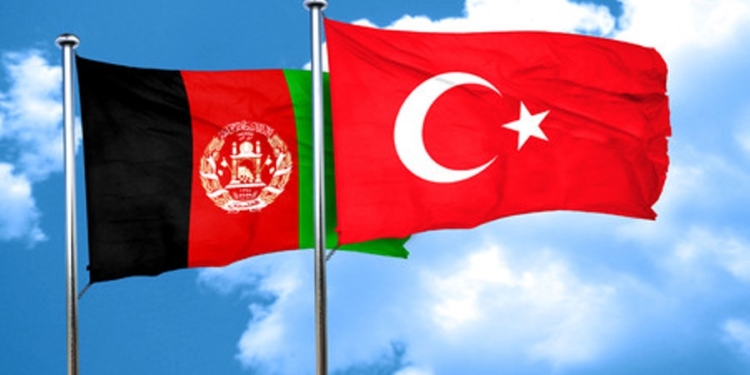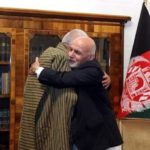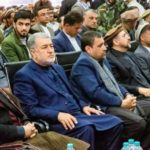The proposed UN-led conference on Afghan peace in Turkey may take place on March 27, sources close to the Taliban told TOLOnews on Wednesday.
US sources so far have not confirmed that the meeting will be held on March 27.
The Afghan government also has not commented on the Turkey conference.
Turkey is ready to take part in mediation efforts for peace in Afghanistan and the region, the country’s ruling party spokesman said Tuesday, Anadolu Agency reported.
“Afghanistan is a very important country for us,” Omer Celik, spokesman for the Justice and Development (AK) Party, told reporters in the capital Ankara after a meeting of the party’s Central Executive Board, according to Anadolu news agency’s report.
To a question about ongoing intra-Afghan peace talks, Celik said: “Turkey is ready to be involved in all kinds of mediation efforts for peace in Afghanistan and the region.”
The conference was proposed by US Secretary of State Antony Blinken in his letter to President Ashraf Ghani a copy of which was seen by TOLOnews.
In his letter, Blinken puts forth suggestions to the Afghan government to accelerate the peace process, including convening a UN-facilitated conference with international stakeholders, proposals to facilitate discussion between the two sides to form a negotiated settlement and ceasefire, a meeting in Turkey between both sides to finalize a peace agreement, and a revised proposal for a 90-day reduction in violence.
However, along with these proposals, Blinken made clear that the United States is considering all options regarding Afghanistan, including the May 1st deadline for full withdrawal.
This letter is reportedly similar to one shared with the chairman of the High Council for National Reconciliation, Abdullah Abdullah.
Further, Blinken writes that even with the continuation of the US financial assistance to Afghan forces after an American withdrawal, he is “concerned that the security situation will worsen, and that the Taliban could make rapid territorial gains” and that he shares this so that President Ghani “understands the urgency of my tone regarding the collective work outlined in this letter.”
Moscow Meeting on Afghanistan
Amidst of the US efforts, the officials on Tuesday confirmed that Russia is planning to host a meeting on the Afghan peace process within the next 9 days and that it will invite key political leaders for the event.
Politicians from Afghanistan, including President Ghani and Abdullah Abdullah, the chairman of the High Council for National Reconciliation, as well as foreign envoys and the Taliban representatives, are expected to attend the meeting in Moscow on March 18 to discuss the Afghan peace process, the reconciliation council’s spokesman Fraidoon Khwazoon said.
“A conference will be held. Some figures have been invited. The reconciliation council chairman has also been invited,” Khwazoon said.
“The High Council for National Reconciliation is consulting on the meeting and will decide whether to participate in the conference or not,” he said, adding that “Russia has an important role in the Afghan peace process.”
The aim of the meeting is to accelerate Afghanistan’s peace talks in Doha to put an end to the Afghan conflict, a source said, adding that the meeting has been coordinated with the United States.
Envoys from China, US and Pakistan will attend the meeting, according to a source.
The Presidential Palace so far has not commented on the meeting.
Peace Talks
The US State Department said on Monday that it is too early to say how Afghan peace talks are going, but the United States believes this is a moment when progress is possible, Reuters reported.
Reuters reports that State Department spokesman Ned Price also told a regular news briefing that the US special envoy for Afghanistan, Zalmay Khalilzad, would be based in Doha for some time.
“We have continued to encourage all sides to take part constructively and with a degree of alacrity, knowing that this is a moment in time where progress is possible,” Price said. “We want to do everything we can to facilitate that progress, to support dialogue, the inter-Afghan dialogue between the various parties. That’s precisely why we’re there.”













